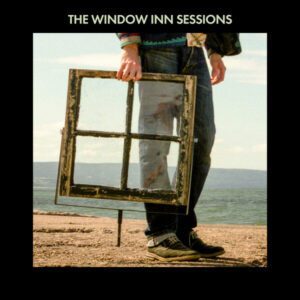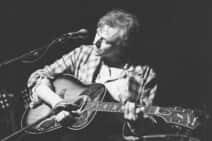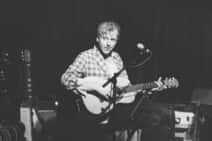You want the Coles Notes version of Joel Plaskett’s new album? You want Scrappy Happiness distilled down into one tasty bite, one lyrical bon mot? You want the themes of the songs, the sentiment of the material and even the process it was recorded put into one handy rhyme?
He’s more than happy to oblige, directing your ears or your gaze to a line in the opening track “You’re Mine:” “Every young band wants to build The Wall, but a real rock record’s like a wrecking ball.”
“It is just about a moment in time,” says the veteran Canadian pop rocker. “It’s about alchemy and you don’t know what that is until you’ve done it. And you don’t even recognize it. And really great records have all of these imperfections and have songs that a lot people don’t like on them, or didn’t make sense at the time. It’s just the art of doing it is really what it boils down to. And then someone else can decide if it’s classic or not, or timely.”
Or, to peel it back further: Embrace the imperfections. In your music and in your life. It’s something Plaskett took to heart as he and his band Emergency hit his Scotland Yard studio, banging out a track a week for 10 weeks, releasing each — audio warts and all — at the end of the seven days.
The songs were then compiled on the final Scrappy Happiness album, without any further tweaking, and set off into the world on his New Scotland Records label.
The result stands in stark contrast to his last release, the Juno-winning and Polaris-nominated Three, which contained a trio of polished and crafted records, but it’s something that Plaskett is equally as proud of, being in the spirit of those musicians and the work he admires.
The songwriter and producer offers, by way of example — but he’s quick to note, not of comparison — Bob Dylan’s “Queen Jane Approximately” from the classic Highway 61 Revisited.
“The guitar is literally close to a semi-tone out of tune with the piano,” he says incredulously. “It’s remarkable that by anybody’s standards that would be acceptable in 1965. But for whatever reason Dylan probably was like, ‘That’s cool man. I got it.’ . . . But the song is that good and he probably just went, ‘It’s time for me to move on because I’ve got another idea.’
“Getting back to my recording, at a certain point, you go ‘Is the song any good or not? Are the imperfections taking away from the song?’ . . . This was the record to go, ‘I did a song this week, and now it’s out.’ It’s a personal challenge that other people are privy to and if they want to pay attention, great.
“But I stand behind the songs. I stand behind the sentiment and the melodies and the words and I think the band played great on it.”
He laughs. “You know, people toil over songs that aren’t that great.”
Again, he thinks the 10 tunes stand up among some of the best he’s released, either as a solo artist, with the band, or even with the first act in the ’90s, Haligonian alt-rock band Thrush Hermit.
Ironically, it was a reunion two years ago with the quartet that colours some of the material, marrying, as it does, that initial idea of embracing the imperfections with the idea of the past and the idea of nostalgia. But rather than wanting to convey some sort of desire to go backwards, Plaskett thinks it’s more about being able to appreciate the present.
“I think that’s where the nostalgia comes from,” he says. “You have all of these things that if you look back all of those blurry edges, it seems really beautiful, but if you were inside of it, you would realize it was riddled with imperfections, as many imperfections as there are in the moment right now.
“So it’s about trying to capture the present moment maybe using the filter of the past to realize what you’d do differently.”
For his part and with his career, Plaskett admits there’s very little.
He’s quite content with his career trajectory, which has seen him over the past two decades grow out of the clubs to now playing bigger rooms.
He’s also proud of his production work, which can be heard on albums such as Sarah Slean’s Land & Sea double album and the discs of fellow East Coasters Two Hours Traffic.
And he’s even content with the legacy of Thrush, something he says he can hear in acts such as The Sheepdogs, and his own place in the Canadian musical landscape.
In fact, truth be told, his outlook on life these days seems to echo a great deal the concept and execution of his latest album
“I’ve got this f—ing weird name, I’ve got this band that goes from being The Joel Plaskett Emergency to Joel Plaskett and the Emergency to Joel Plaskett Emergency Band — nobody knows what it even is. It’s all peculiar,” he says.
“I put a monkey on the cover because it’s a toy from the ’60s that I like and I put a bust of Wayne Newton on that back because I like that, and both of those things make me happy.
“And that’s what the record is about, happiness, as weird as it is.”
And as perfectly imperfect as it can be.




